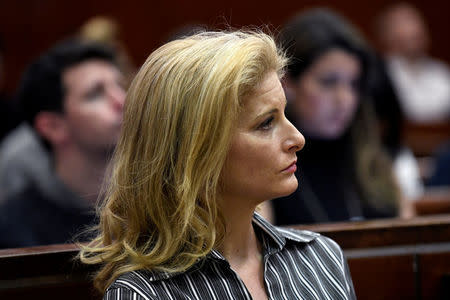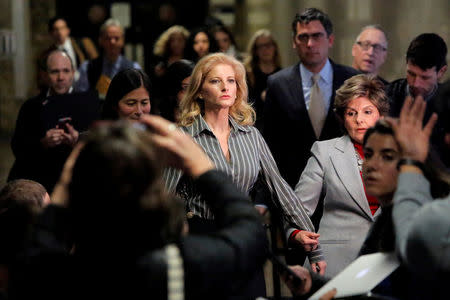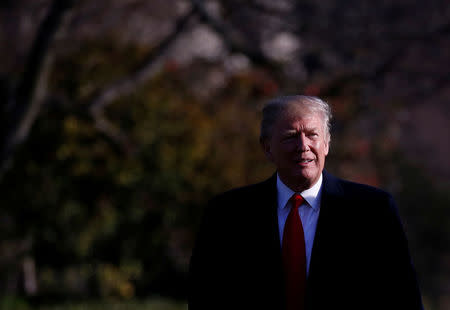Trump, deemed not 'above the law,' must face defamation lawsuit
By Jonathan Stempel and Brendan Pierson
NEW YORK (Reuters) - A New York state judge on Tuesday said U.S. President Donald Trump must face a defamation lawsuit by a woman who accused him of sexually harassing her after she appeared on his former reality TV show.
The decision by Justice Jennifer Schecter of the New York state court in Manhattan in favour of California restaurateur Summer Zervos, a former contestant on NBC's "The Apprentice," raises the prospect that Trump might have to answer embarrassing questions in court about his behaviour towards women.
She rejected Trump's claim that he was immune from being sued, finding "absolutely no authority" to dismiss litigation related "purely to unofficial conduct" solely because he occupied the White House.
"No one is above the law," the judge wrote.
A White House representative was not immediately available for comment on the ruling.
Mariann Wang, one of Zervos' lawyers, said in a statement: "We are grateful for the opportunity to prove that that defendant falsely branded Ms. Zervos a phony for telling the truth about his unwanted sexual groping."
Trump has been accused by several women of misconduct, including after the release during the 2016 presidential campaign of an "Access Hollywood" recording in which he had spoken in vulgar terms about trying to have sex with women.
He later said the comments were "locker room banter" and his campaign issued an apology from him if anyone was offended.
Trump also faces a lawsuit by porn actress Stormy Daniels to end an agreement under which she was paid $130,000 in what she called hush money to keep quiet about an affair she claimed to have had with Trump beginning in 2006.
Also on Tuesday, Karen McDougal, a former Playboy model who said she had an affair with Trump, filed suit in California to release her from a legal agreement requiring her to stay silent.
TRUMP BRANDED ALLEGATIONS "LIES"
Zervos had met Trump when she became a contestant on "The Apprentice" in 2005. She accused him of kissing her against her will at his New York office in 2007, and later groping her in a Beverly Hills hotel at a meeting about a possible job.
During his campaign, Trump repeatedly said at rallies and on Twitter that all accusations made by women after the "Access Hollywood" recording became public were "lies."
He also republished on Twitter another a post that called Zervos' accusations a "hoax."
Zervos said Trump's denials of her accusations amounted to defamation and that being branded a "liar" caused diners to stay away from her restaurant. Her lawsuit sought damages and an apology.
In allowing Zervos' case to go forward, Schecter cited a 1997 U.S. Supreme Court precedent allowing former Arkansas state employee Paula Jones to pursue a sexual harassment case against then-President Bill Clinton to proceed. That paved the way for Clinton's impeachment the following year.
Trump's legal team had argued the Jones decision applied only to federal courts and that Trump's campaign statements were political speech protected by the U.S. Constitution's First Amendment.
But the judge said any listener, recognising that Trump knew "exactly what transpired," could reasonably believe based on his statements that Zervos was "contemptible" because she had "fabricated" events for personal gain.
"In their context, defendant's repeated statements ... cannot be characterized simply as opinion, heated rhetoric or hyperbole," Schecter wrote.
The case is Zervos v Trump, New York State Supreme Court, New York County, No. 150522/2017.
(Reporting By Brendan Pierson in New York; Editing by Ben Klayman and Bill Trott)



